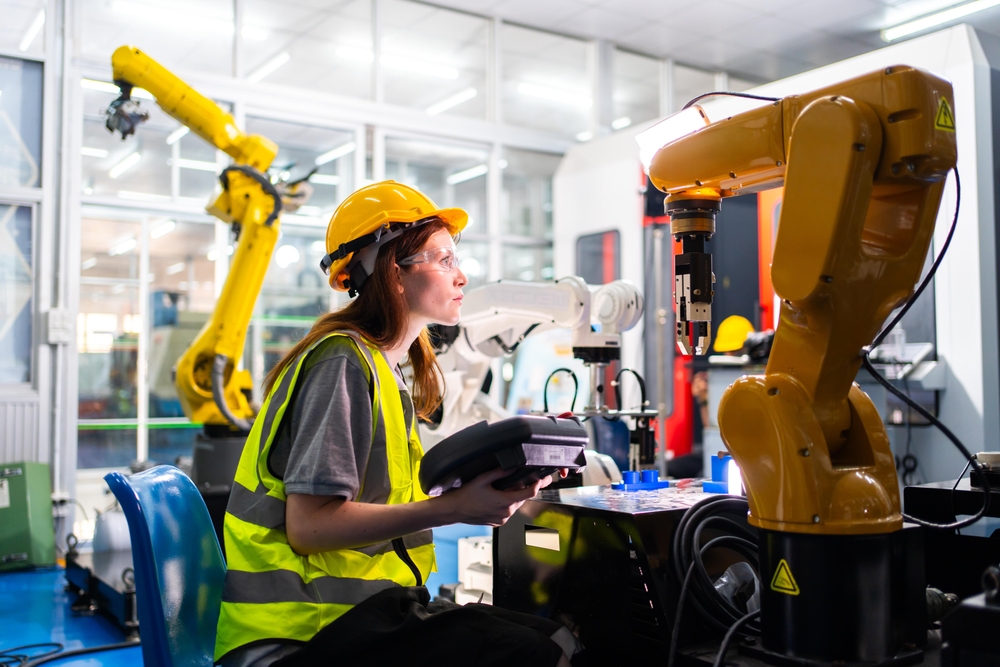The custom manufacturing space is beginning to boom from something that many weren’t aware of. This is because many people are searching for unique products that speak to them, putting a new demand on many businesses to create one-of-a-kind personalized products. Due to this, many businesses need to manufacture custom products to keep up with the competition and retain customers. However, custom manufacturing is a completely different world from traditional manufacturing because it follows a unique business model and implements new strategies.
Custom manufacturing involves the production of goods in small batches or quantities as they are requested by clients. It should take advantage of quick manufacturing processes to generate short lead times, allowing businesses to keep up with customer demand. It should also blend precision engineering, digital design, and on-demand production to create products customers love. Products need to speak to the customer and meet their individual requirements. This can be difficult for businesses that are new to this or entrepreneurs looking to enter this space. However, there is a unique opportunity to create a niche for yourself and blend creativity and functionality seamlessly. Whether you’re a machinist with years of experience or a tech-savvy founder exploring CNC-based ventures, launching a business in custom manufacturing requires more than just a good idea. It requires an understanding of process, market needs, and the evolving expectations of today’s clients.
Table of Contents
What is Custom Manufacturing?
Custom manufacturing requires a versatile process to be able to create custom components in small quantities that meet complex, and individual, design specifications. It involves designing, engineering, and manufacturing products that meet customers’ unique requirements. This means you have to work closely with the end users to design and create the right product for them. Because of this, custom manufacturing requires experts with unique knowledge and a more hands-on approach.
It also uses customized manufacturing technology that lets you integrate precision with personalization. This helps to transform your perspective on production and design processes.
How it Differs from Mass Production

Custom manufacturing caters to the production of made-to-order parts, tools, components, and prototypes. This differs from mass production in that every order is tailored to specific customer requirements. From automotive parts and medical devices to architectural fittings and designer furniture hardware, businesses and individuals are constantly looking for one-of-a-kind solutions that speak to them.
So, what’s driving this demand? Well, the huge advancements in technology have made it easier than ever to produce precision parts at a low volume. Alongside this, e-commerce has grown its access to customers who may not have had the prior knowledge to find bespoke products for them. As a result, smaller manufacturing shops and independent makers are thriving by providing agile, personalized services in an industry that used to rely on large-scale, traditional manufacturing methods.
Essential Elements of a Successful Custom Manufacturing Business
At the heart of any custom manufacturing business is the ability to produce high-quality work efficiently. This means investing not only in equipment, but also in systems that support precision, speed, and flexibility. A CNC machine might be the backbone of your business, but so is the software that drives it, the workflow that supports it, and the customer communication that maintains trust throughout the process. This means that these extra elements that work alongside your main tool need to be considered and checked to make sure that they’re working correctly. If something isn’t working right, it can slow your processes down and make it hard to achieve the demand for customization.
One of the key advantages of custom manufacturing is adaptability. Clients often require modifications, revisions, or experimental designs that need quick turnarounds and attention to detail. Your ability to deliver consistent results, regardless of the complexity or scale of the order, will affect your reputation. If you can’t keep up, you can gain a bad reputation for custom manufacturing, but if you work on your processes and are adaptable to excel, you will succeed in creating a positive brand image. This is especially important in industries like aerospace, medical, and automotive, where exact tolerances and compliance standards are non-negotiable.
Finding Your Market and Building Relationships
While the technical side of custom manufacturing is important, the business side is also hugely vital and needs to be focused on. This is because this aspect is what will ultimately determine your success. You should begin with identifying a clear niche or target audience. Will you specialize in prototyping for startups? Customized bike parts? Artistic metalworks? Each niche comes with its own expectations and understanding them is crucial for both marketing and client satisfaction.
Relationship-building is also key. A huge part of your custom manufacturing business will be built on trust and repeat clients. So, it’s essential to get your brand out there and communicate with customers regularly, allowing them to trust what you’re selling and become close and more interested in your brand. You should offer loyalty schemes to entice customers to come back and be honest with them through all communications. All of this will make customers want to return and become regular customers of your business. Being responsive, transparent, and flexible in your communication can set you apart in a crowded market. Delivering your products to them on time and providing honest feedback throughout the design and production process goes a long way in building long-term partnerships.
Don’t overlook the power of digital visibility either. A well-organized website showcasing your capabilities, portfolio, and expertise can act as an insight into your business, and is often where many people’s first impressions form. Pair this with strong SEO, social presence, and case studies, and you can position yourself as a professional, reliable option.
Tooling and Technology to Improve Quality
In custom manufacturing, precision tools are not just something to help you create unique products, but they are also essential to your business. You need to carefully select the tooling you use when you set up your workshop. This will help to make a huge difference in the efficiency of your processes and the finish of your products. For example, machinists working on complex components often rely on solid carbide endmills for their durability and ability to deliver high-quality finishes on metals and composites. While these tools are an investment, they reduce wear, increase consistency, and improve output.
Technology continues to be a key tool to use in custom manufacturing. Cloud-based project management tools, CAD/CAM integration, and automated quoting systems can streamline operations and improve the customer experience. Being willing to embrace new technologies can improve productivity and help you stay competitive in a space where innovation is constant.
Future-Proofing Your Business
The future of custom manufacturing will change as technologies become more advanced. However, it will continue to integrate agility, sustainability, and digital integration. Environmental considerations are constantly growing due to our negative impact on the planet. This means that customers are always looking for businesses that can help them be more eco-friendly. You should look for ways to reduce material waste. You should also keep yourself informed on industry trends to keep up with the competition and continue to train new techniques to stay ahead of the curve. On top of this, investing in equipment upgrades is pivotal to ensuring your business can achieve long-term success.
